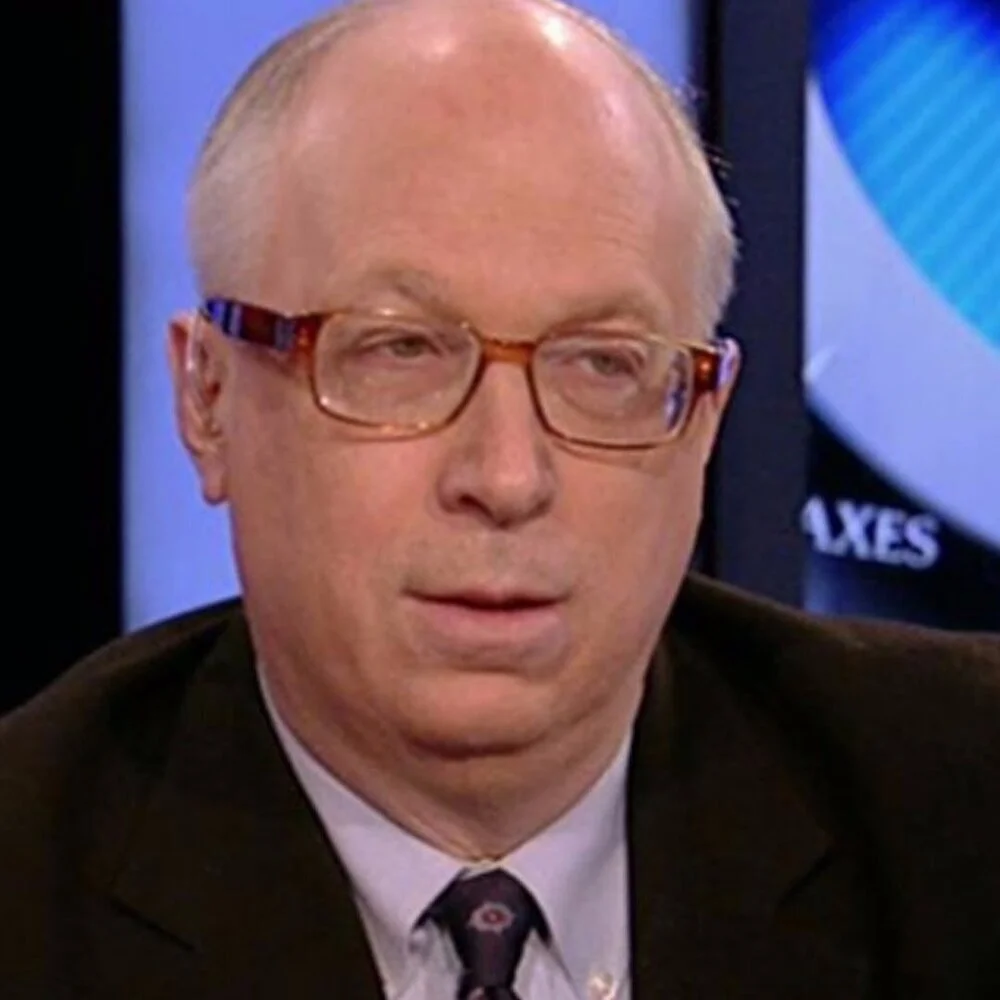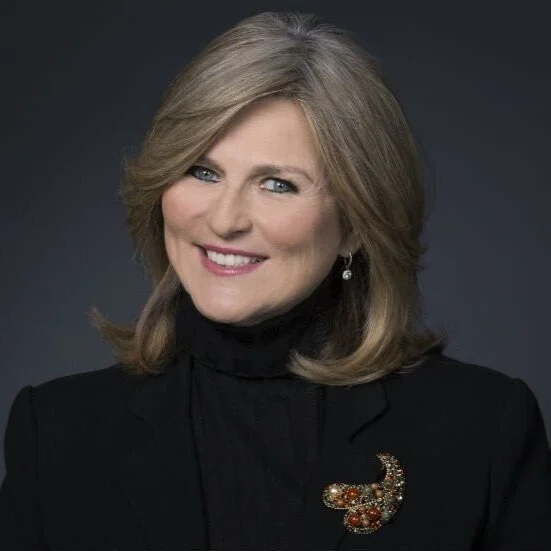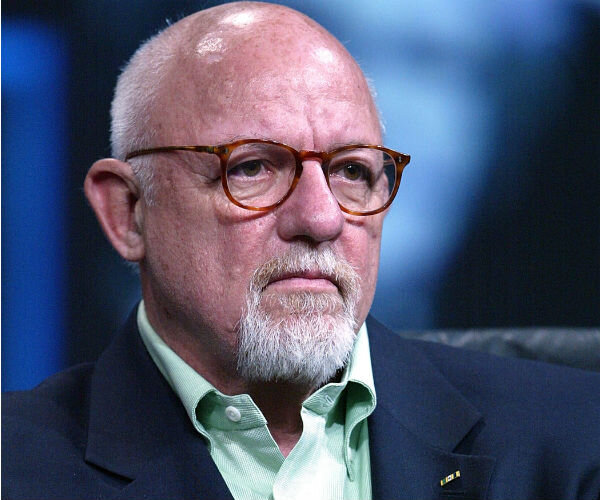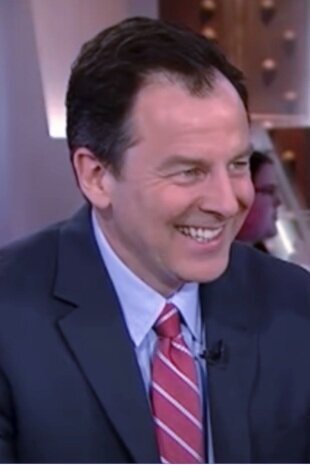
PAST EVENTS
The Election That Could Break America
After Election Day, what should we expect? The list of possibilities is keeping experts on both sides of the aisle getting ready to take action. The Common Good hosts, “The Election That Could Break America” with Pulitzer prize-winning journalist Bart Gellman, and moderated by Tom Rogers. You will not want to miss Gellman dive into his most recent much-talked-about article in The Atlantic and his insights into the unprecedented scenarios that we may encounter post-election.
After Election Day, what should we expect? The list of possibilities is keeping experts on both sides of the aisle getting ready to take action. The Common Good hosts, “The Election That Could Break America” with Pulitzer prize-winning journalist Bart Gellman, and moderated by Tom Rogers. You will not want to miss Gellman dive into his most recent much-talked-about article in The Atlantic and his insights into the unprecedented scenarios that we may encounter post-election.
WATCH:
The Election that Could Break America - Recap
We thought we’d keep it light and fun for you all today; that’s why we invited Pulitzer prize- winning journalist, Bart Gellman, to The Common Good to discuss the election (yeah, that one). Media legend and Editor-at-large at Newsweek, Tom Rogers, moderated this important and all too timely discussion that centered on Bart’s recent and widely discussed article in The Atlantic, entitled, The Election that Could Break America. Tom was early (if not first) to note that Trump could very well subvert the election by staying in office no matter the outcome, and he has since written extensively about the topic in Newsweek with former Congressman Tim Wirth. Needless to say, we’re lucky to have two experts join us to discuss the election and potentially the future of our democracy.
Trump’s strategy is opacity, Bart begins ominously. Moreover, He will wield the power of incumbency to benefit his own reelection in a way that we’ve probably never seen before. While Trump will have a lot less running room if he loses by a landslide, we’re likely heading towards uncharted territory.
Gift of prophecy? No, just following the evidence; Bart asserts that no matter the outcome, Trump will not concede that he was defeated.
Both in prepared and off-the-cuff remarks, Trump has flatly said that the only way he could lose this election is if it is rigged against him.
“Our Constitution does not secure the peaceful transition of power, but rather presupposes it,” Bart Gellman.
Bart reminds us that SCOTUS didn’t determine 2000, it was Gore’s decision to ultimately concede.
SCOTUS, or at least Roberts, will be reluctant to weigh in, especially in the face of the court’s waning legitimacy. However, Bart can’t say the same for Kavannaugh at this point.
Bart suggests that if you ask most state legislators if they’d be willing to discard voters in their states, they’d probably say no. It’s hard to look in the mirror and do so; however, Trump’s genius is twofold; his manipulation of attention; and he enures people into grey areas, specifically norm-busting in a way they didn’t necessarily expect. And norms are the glue that keeps most of this together.
Ingredients for a Mess
Most states don’t allow mail-in-ballots to be processed before election day - it’s a slow process, so there will be a backlog. Florida, North Carolina, Arizona are important exceptions.
Trump has deliberately undermined trust in mail-in-ballots, creating a situation where many more Republicans will vote in person, while many more Democrats will vote by mail.
His strategy seems to be to disqualify votes that are counted “late,” locking in votes that are made day of, calling them valid.
Consequently, networks may be reluctant to determine a winner.
There’s no umpire; our elections are administered by thousands of localities. Bart soberly creates a scenario for us in which Trump attempts to blatantly steal the election: we would have mass demonstrations, with tens of millions of people. If they were peaceful, they (and democracy) would win. If they were violent, Trump could call on the troops and take advantage of the chaos.
Tom asks if there’s room for the business community to step in and while Bart acknowledges its potential efficacy, he also remarks “God help us if we are dependent on business leaders to figure out our elections for us.”
Similarly, it would be hard to imagine Republican party leaders diverging too far from Trump at any point in this process - they’re too enmeshed with his narrative.
Audience Question: What reforms can fix this?
The Electoral Count Act is a mess and in need of clarity.
We have a decentralized, underfunded election system that makes it inefficient and vulnerable to foreign threats, so money and some uniformity.
Further Reading from the Transition Integrity Project: https://assets.documentcloud.org/documents/7013152/Preventing-a-Disrupted-Presidential-Election-and.pdf
What We’re Watching this Weekend: City So Real (National Geographic/Hulu): This 5-part docu-series depicts a complex portrait of Chicago from the historic ‘19 mayor’s race to the tumultuous summer of ‘20.
Barton Gellman is a highly respected and much-honored author and journalist, a staff writer at The Atlantic, and Senior Fellow at the Century Foundation in New York. His awards include the Pulitzer Prize, an Emmy for documentary filmmaking, and the Los Angeles Times Book Prize.
His recent articles from The Atlantic have been widely praised for the cogent look at the turmoil and chaos that could erupt from the 2020 election.
Gellman is responsible for many important stories. He led The Washington Post's coverage of the U.S. National Security Agency, which was based in large measure on top-secret documents provided to him by ex-NSA contractor Edward Snowden. He published a book for Penguin Press on the rise of the surveillance-industrial state in May 2020.
Moderated by Tom Rogers, a true innovator and leader in the field of television, news and entertainment, Tom Rogers is the founder of CNBC and a CNBC contributor, as well as the founder of MSNBC, when he served as the first President of NBC cable. He is the former CEO of TiVo and is currently Chairman of Engine Media, a broad based sports, esports, and news content & distribution company.
He can also be credited for as bringing Netflix and Amazon to the TV screen. He is the former Senior Counsel to the House Telecommunications Committee where he oversaw the FCC and media industry. He is also an Editor-at-Large for Newsweek.
He has been inducted into the Cable Hall of Fame and has won an Emmy Award for contributions to the development of advanced television and advanced advertising.
Recap: Final Presidential Debate Panel
After a tumultuous first debate, the final face off will be the last, perhaps best, chance for President Trump or Vice President Biden to tell the American people why he should be elected the next president of the United States. Can we expect a serious discussion of their policy differences or another breakdown in decorum?
Whatever happens, these confrontations do shape the national conversation and the upcoming election -- and The Common Good had the extraordinary panel of political experts to analyze the impact on voters, who are already starting to head to the polls. Join ace strategist @PaulBegala and election outcome seer @RachelBitecofer. Moderated by Emmy nominated journalist @CynthiaMcFadden.
In keeping with the theme and general ethos of 2020, we had a few last-minute changes. Fortunately, the inimitable author, strategist and pollster Doug Schoen stepped in, along with the razor-sharp election whisperer, Rachel Bitecofer, as well as the brilliant, Emmy award-winning journalist, Cynthia McFadden, as moderator. And we’re lucky they did, as there’s plenty to unpack from the final (*phew*) presidential debate.
McFadden: Forget the formalities - Was there a winner?
Schoen contends that while Trump showed some much-needed discipline and restraint, ultimately Biden did what he needed to do and simply “held up.” And although the race might tighten a bit, the fundamental dynamics of the race won’t significantly change. Trump did the best he could given the facts on the ground, specifically the negative fallout of the pandemic. Ultimately, the candidates mostly spoke to their respective base, with Biden reaching out a bit to all Americans, but, notably, as a proud Democrat. With 45 million votes already, many experts are predicting record turnout for this election. Contrary to popular belief, however, Doug doesn’t see evidence that more turnout will invariably benefit Dems; and while Biden still has a clear advantage, swing states are closer than the overall popular vote.
Rachel, on the hand, said there probably wasn’t a winner of last night’s debate, just a loser - the American people. That was right before she soberly reminded us that our democracy is off the rails, that our president lies constantly and about important things, and that this enormous departure from American presidential history and norms has proven challenging for the media to cover in the face of the need for journalistic impartiality. While Trump was the consensus loser from the first debate, Rachel notes that this debate was mostly unnoteworthy. Partisans saw what they wanted to see – either a Trump win or a Biden win. Therefore, pure independents should be asked, but Rachel asserts they mostly don’t exist.
Are there still Undecided voters? (very few) What about Independent voters? (not really)
According to Doug, at this point in the race, Undecided Voters are low-information voters who feel alienated by the current system. They represent about 6% or 7% of voters.
Rachel argues that, based on her research, Independents aren’t actually independent. Actually, they almost always “lean” one way or the other (just like us, except they’re not political junkies). Moreover, Independents often are just as settled as partisans, they’re just more embarrassed about their partisanship.
Warning: Entering THE WEEDS
Rachel describes a theory that postulates: In our polarized era, Independents have an anti-status quo bias, meaning that the status quo always sucks for these voters. Therefore, they’re likely to break away from the current status quo. In this case, that would mean Independents will break in favor of the Democrats. In fact, per Rachel, the pandemic is likely to enhance the traditional 55%/44% vote for change by Independents.
Check Out Rachel’s article https://newrepublic.com/article/156402/hate-ballot
Cynthia brings up voter Trust, citing “Democracy is like Tinkerbell; once you stop believing she dies.”
Both Doug and Rachel are worried about the integrity of election and health of our democracy; however, they diverge slightly on the causes. While Doug focused on foreign interference in our election; Rachel emphasizes the institutional erosion - in the Senate, in the lack of government accountability and responsiveness, and in Trump’s open warfare on the election itself.
By the way, this warfare isn’t just Trump being Trump. Rachel also voiced concern about RNC and DOJ coordination. She paints the scenario whereby the conservative media machine declares Trump ahead on election day voting - knowing that Dems are more likely to vote by mail, Republicans in person - and then they launch a bevy of lawsuits to discredit mail-in votes that have yet to be counted.
Additional Thoughts from our Panel
Flash point? Biden’s comments on oil - specifically that we should transition away from it - could provide Trump with an opening to highlight the radical approach of The Green New Deal and Biden’s perceived equivocation on fracking.
Audience Question: Will it hurt Biden in PA?
Doug said Trump should wield that comment in a hyper-targeted way in Pennsylvania.
Rachel said those comments are more important in Texas, whose economy is more reliant on oil.
Biden has already walked it back and pivoted to ending subsidies for oil, which makes more political and practical sense. Although Trump has footage and will use it.
Switching to forecasting for Congressional Races
Rachel has the following states flipping Senate races to Dems: Arizona to Mark Kelly, Colorado to John Hickenlooper, Maine to Sarah Gideon, North Carolina probably to Cal Cunningham (very close, but early African American turnout is high).
There are tantalizing possible Tossups for Dems: Iowa to Theresa Greenfield, Alaska to Al Gross, South Carolina to Jaime Harrison, Kansas to Barbara Bollier.
But not Kentucky – White, low college-educated electorate
RE: Trump’s claim that Rs take the house – Trumps makes a lot of stuff up. No evidence, but hasn’t stopped him before. He’s just trying to keep people optimistic.
Rachel said just as there are best practices with pandemic response, there are best practices for electioneering – Base mobilizing being one of them, and usually every nominee comes out of the primary and repositions toward the center in the general election campaign.
However, Trump does things that are antithetical to winning elections:
Trump is still running a base strategy – worked last time, but it frustrates his handlers that they can’t get him to change course. He did tone down his temperament.
Final points: Rachel’s Minimal Effects Theory – Presidential campaigns don’t have a lot of room to influence voters in a hyper-partisan political landscape.
Trump has tamped down his voter erosion, but his first debate performance hurt the Senate Republicans. Trump is is seen as bad on race, empathy, police violence – not serious, empathetic voice. He’s adding to the criminality myth of black male. However, he has a bolder, better argument than Criminal Justice Reform – letting them out of prison. It’s a challenge for Trump as an incumbent to label Biden as the insider.
Rachel makes this point clear - Republicans are great at messaging, Dems struggle – they too often speak to the head, not the gut.
WATCH:
Rachel Bitecofer
A true election whisperer, Dr. Bitecofer received national acclaim for her prediction of the results of the 2018 United States midterm elections more closely than most other forecasters. She has continuously helped to predict and analyze elections and data making her one of the most sought after political scientists in the country.
She continuously appears on tv, including CNN, MSNCB, along with media outlets like NYT, NPR and the Washington Post.
Dr. Bitecofer is famous for her main thesis that modern elections are not decided by the swing vote, but rather negative partisanship, which prioritizes defeating the other side over any specific policy objective. Under her theory, shifts in voter turnout decide everything, and the "swing" mainly comes from whether voters decide to vote at all rather than deciding who to vote for.
Doug Schoen has been one of the most influential Democratic campaign consultants for over thirty years. A founding partner and principal strategist for Penn, Schoen & Berland, he is widely recognized as one of the co-inventors of overnight polling.
Schoen was named Pollster of the Year in 1996 by the American Association of Political Consultants for his contributions to the President Bill Clinton reelection campaign.
His political clients include New York City Mayor Michael Bloomberg and Indiana Governor Evan Bayh, and his corporate clients include AOL Time Warner, Procter & Gamble and AT&T. Internationally, he has worked for the heads of states of over 15 countries, including British Prime Minister Tony Blair, Italian Prime Minister Silvio Berlusconi, and three Israeli Prime Ministers.
He is the author of multiple books, most recently publishing, The End of Democracy. He is a regular contributor to the Wall Street Journal, the Washington Post and various other newspaper and online publications. He is also a Fox News Contributor, making appearances on various news programs several times a week.
Cynthia McFadden was named co-anchor of ABC News' "Nightline" in October 2005. She joined ABC News in February 1994 as the network's legal correspondent. Two years later she was named a correspondent for "PrimeTime," and was made a co-anchor of the broadcast in 2004.
McFadden took an exclusive and rare look inside the new Ku Klux Klan and covered the tragic school shooting in Newtown, Conn. She has reported extensively from Africa and India on the HIV-AIDS pandemic; from China on the environmental costs of that country's rapid economic growth; and on the illegal sale of women and young girls into sexual slavery. Her investigation into horrific human rights abuses in several Mexican mental hospitals led to a major overhaul of that government's institutions for the mentally ill.
McFadden led the first investigation by a major news organization into one of America's darkest secrets, the forced sterilization of 60,000 to 100,000 American citizens; tracked five accused murderers to their hiding places in El Salvador, where she interviewed two of them; and investigated the use of female contraceptives to treat convicted rapists.
She left ABC in 2014 and is currently the senior legal and investigative correspondent for NBC News. She has won a Peabody and an Emmy, along with countless other awards.
The First Presidential Debate Panel
Join us as we review the First Presidential debate between President Donald Trump and Vice President Joe Biden. How are their performances going to impact voters, did it sway anyone and other insights from the night. Our panelists reviewed and analyzed the highs and lows of the face-off between the Democrat and the Republican nominee's and how the debate may affect each ticket’s election fortunes.
ABOUT THE EVENT
Join us as we review the First Presidential debate between President Donald Trump and Vice President Joe Biden. How are their performances going to impact voters, did it sway anyone and other insights from the night. Our panelists reviewed and analyzed the highs and lows of the face-off between the Democrat and the Republican nominee's and how the debate may affect each ticket’s election fortunes.
WATCH:
John Avlon is an author, columnist and commentator. He is a senior political analyst and fill-in anchor at CNN, appearing on New Day every morning. From 2013 to 2018, he was the editor-in-chief and managing director of The Daily Beast, during which time the site’s traffic more than doubled to over one million readers a day while winning 17 journalism awards.
Stephen Marshall wrote “Avlon talks about politics the way ESPN anchors wrap up sports highlights.” Columnist Kathleen Parker wrote, “Americans who are fed up with the Ann Coulter/Michael Moore school of debate and are looking for someone to articulate a commonsense, middle path, may have found their voice in John Avlon.”
He has written three books, one of which was hailed by TheModerateVoice.com as “the best political book ever on American centrist voters.” Avlon is also a co-founder of No Labels – a group of Democrats, Republicans and Independents dedicated to the politics of problem-solving and making government work again.
Ed Rollins is a giant in the political world, having served as campaign consultant and advisor for numerous congressional, senatorial, gubernatorial and presidential campaigns and victories.
During the Reagan administration, he served as Assistant to the President for Political Affairs and Director of the Office of Political Affairs. He would go on to lead Reagan's re-election campaign in which he oversaw the 1984 election where Regan won 49/50 U.S. states
He was the first non-member of Congress to serve as the Chairman of the National Republican Congressional Committee and the Chief Political Advisor to the House Republican Leadership. He has gone onto manage successful campaigns for: Governor Christine Todd Whitman, Congressman George Nethercutt and Katherine Harris and currently serves as chairman of the Great America PAC.
He was inducted into the Political Consultants Hall of Fame in 201 and was was also the recipient in 2010 of the Ellis Island Medal of Honor.
Doug Sosnik served as a senior advisor to President Clinton from 1994 to 2000, playing a key role in policy, strategy, political and communications decisions in the White House; his titles included Senior Advisor for Policy and Strategy, White House Political Director and Deputy Legislative Director. Prior to joining the Clinton Administration, Sosnik was the chief of staff for Connecticut Senator Chris Dodd, and later worked with the Democratic Congressional Campaign Committee.
Mr. Sosnik currently advises elected officials, corporations, foundations, universities, non-profits and philanthropists on strategic planning and crisis management. Clients include the National Basketball Association, the Motion Picture Association of America and CNBC, as well as advised over 50 U.S. Senators and governors.
Doug co-authored a New York Times bestseller, Applebee’s America: How Successful Political, Business and Religious Leaders Connect with the New American Community.
"RNC Post-Convention Roundup" with Dan Rather, Margaret Hoover, & Alex Castellanos
Join The Common Good as we breakdown the past four day Republican National Convention. Brilliant political experts and commentators Dan Rather, Margaret Hoover, and Alex Castellanos discuss the RNC and what occurred.
Join The Common Good as we breakdown the past four day Republican National Convention. Brilliant political experts and commentators Dan Rather, Margaret Hoover, and Alex Castellanos discuss the RNC and what occurred.
"DNC 2020" with Dan Rather, Ron Brownstein, and Karen Finney
Join The Common Good as we breakdown the four day Democratic National Convention. Brilliant political experts and commentators Dan Rather, Ron Brownstein, and Karen Finney discussed the DNC and what occurred.
Join The Common Good as we breakdown the four day Democratic National Convention. Brilliant political experts and commentators Dan Rather, Ron Brownstein, and Karen Finney discussed the DNC and what occurred.
"What is the President's Endgame?" with Eric Swalwell & Dennis Mehiel
Congressman Eric Swalwell (D-CA 15) joined The Common Good for a riveting conversation as we discuss his new book "Endgame: Inside the Impeachment of Donald J. Trump." We got an inside look into what went on during the impeachment, recent revelations made by other government leaders, along with discussing the 2020 election. Moderated by business leader and philanthropic icon Dennis Mehiel.
Congressman Eric Swalwell (D-CA 15) joined The Common Good for a riveting conversation as we discuss his new book "Endgame: Inside the Impeachment of Donald J. Trump." We got an inside look into what went on during the impeachment, recent revelations made by other government leaders, along with discussing the 2020 election. Moderated by business leader and philanthropic icon Dennis Mehiel.
LISTEN:
WATCH:
Eric Swalwell is serving his fourth term representing California's 15th Congressional District, in the East Bay near San Francisco. Elected to Congress at age 31, he now serves on the House Permanent Select Committee on Intelligence and the House Judiciary Committee, and co-chairs the House Democratic Steering and Policy Committee.
In his first term he introduced three bills and had two signed into law -more than any other freshman congressman. He has since continued to have great success and has been credited as a leader within the party. Swalwell ran for the Democratic nominee for president focusing heavily on gun control but eventually dropped out. He recently published the book "Endgame: Inside the Impeachment of Donald J. Trump."
Dennis Mehiel is one of the Democratic Party’s most visionary, effective and experienced leaders in the fields of business, government, politics and philanthropy. His close friends, Speaker of the House Nancy Pelosi, Senate Minority Leader Chuck Schumer, New York Governor Andrew Cuomo and dozens of other national Democratic leaders and Presidential candidates can attest to his vision and effectiveness. He has chaired and been involved with numerous committee's including the Battery Park City Authority and founded ShowUp in 2018 to increase participation in the 2018 midterm election.
Mehiel’s governmental and political skills arise from decades of business and charitable activities. As Chairman, CEO and principal shareholder of Sweetheart Cup Company – then North America’s largest producer of disposable tabletop products for the “away-from-home dining” market, he brought the Company back from the brink of bankruptcy and preserved 8,000 jobs. During his long career in the corrugated packaging business he twice built the largest independent producer in North America.
"The Coming Election Breakdown & Fixing an Already Broken Social Media" with Tom Rogers and Jessica Rogers Ecker
Media mogul and expert Tom Rogers, creator of MSNBC and CNBC, along with his millennial daughter Jessica Rogers Ecker joined The Common Good for a unique event where we discussed social media, the youth vote and the 2020 election. What impact will the youth vote play in the upcoming election, how will social media be a factor in this election and so much more.
Media mogul and expert Tom Rogers, creator of MSNBC and CNBC, along with his millennial daughter Jessica Rogers Ecker joined The Common Good for a unique event where we discussed social media, the youth vote and the 2020 election. The impact will the youth vote play in the upcoming election, how social media will be a factor in this election, and so much more.
WATCH:
A true innovator and leader in the field of television, news and entertainment, Tom Rogers is the founder of CNBC and a CNBC contributor, as well as the founder of MSNBC, when he served as the first President of NBC cable. He is the former CEO of TiVo and is currently Chairman of Engine Media, a broad based sports, esports, and news content & distribution company. He can also be credited for as bringing Netflix and Amazon to the TV screen. He is the former Senior Counsel to the House Telecommunications Committee where he oversaw the FCC and media industry. He is also an Editor-at-Large for Newsweek.
He has been inducted into the Cable Hall of Fame and has won an Emmy Award for contributions to the development of advanced television and advanced advertising.
Jessica Ecker is a graduate of Columbia University and Columbia Law School. After law school, she clerked for Hon. Michael M. Baylson of the United States District Court for the Eastern District of Pennsylvania, and then Hon. Cheryl Ann Krause of the United States Court of Appeals for the Third Circuit. She is currently a litigation associate at Sullivan & Cromwell in New York City.
"Trump, the Republican Party, and the American Future" with Sarah Longwell and Susan del Percio
Founder of Republican Voters Against Trump and publisher of The Bulwark, Sarah Longwell joined TCG for a lively discussion, moderated by political strategist, Susan Del Percio, about President Trump and the future of the GOP.
Sarah Longwell, political strategist, founder of Republican Voters Against Trump (RVAT), and publisher of the right-leaning opinion and news website, The Bulwark, spoke to Susan del Percio about her focus groups, her priorities, and the Never-Trump movement. Sitting at tables with conservative intellectual heavyweights and discussing the cancerous effect of Trump got old for Sarah and inspired her to say to the group, which included Bill Kristol and Charlie Sikes, “let’s do something.”
Sarah concedes that she originally and naively thought the establishment Republicans would serve as a guardrail against Donald Trump and that there would be a more formidable primary challenger to him; today, however, it’s clear that neither were true.
Sarah harkened back to her days in communications to devise focus groups around the country with the intent of getting into the minds of “reluctant Trump voters” - what drove them to Trump and what would persuade them to leave him in 2020?
Focus group participants readily admitted Trump’s erratic behavior and questionable character were problematic.
“Women, who voted for him and then went home and cried, were persuadable.”
Republican Voters Against Trump (RVAT)
Recognizing that personal stories move people, RVAT’s goal was to compile intimate testimonials from people who had voted for Trump in 20126, but were not going to in 2020. Sarah admits that it was hard at first, taking 4 months to get the first 100 videos, but after the launch, people saw they weren’t alone and videos poured in.
“There’s not enough tax cuts and conservative judges in the world to justify Donald Trump,” Sarah Longwell
Trump won 3 states by 77k votes in 2016, so Sarah’s goal remained hyper-focused and grounded in reality - eliminate 3% of Trump’s support among Republicans. In order for Republicans to get the message, however, Biden needs a landslide victory. And that message, according to Sarah, is that Republicans should be electorally punished for their faustian bargain with Trump, someone who is actively subverting our Democracy.
“I believe in liberal democracy more than I do marginal tax rates,” Sarah Longwell
Sarah predicts that Independents will break against Trump, because he now has a record to run on and it’s a bad one. Covid-19 has real consequences, and it will be harder to generate excitement to shake things up again - “I feel already pretty shaken right now! (we all do)”
When asked why she doesn’t just become a Democrat, Sarah reminds us that she is still a conservative - a strong American presence in the world, free markets and limited government. Moreover, Democrats are experiencing something similar to Republicans right now, but they’ve done a better job of suppressing it’s populist, far left contingent.
“Polls are not gospel,” Sarah Longwell
Biden has to play to win, which means Pennsylvania, Michigan, Wisconsin and NOT Texas, which is expensive and unlikely. If he’s going to stretch anywhere, have it be Georgia.
Sarah is mostly staying out of the Senate races, noting that it has been hard to watch so many moderate republicans get run out of the party.
What happens to the GOP after Trump loses?
It depends on the margin of his loss. There’s an opportunity to have a fight for the soul of the party, but unless Trump goes to prison, he’s not going anywhere. The party is doomed if he becomes a kingmaker, which is likely at this point.
What’s possible if Republicans hold the Senate?
Rule of Law reforms
Anti-corruption legislation
Modest movement on Healthcare
Narrow senate majority is a foil for Biden. Excuse for Biden to go far too left, where he is comfortable.
What is Trump’s argument that he can run on against Biden?
Trump wanted to run on the economy, but can’t now, so he’s trying cultural wedge issues. However, talking about monuments when Americans can’t send their children to school or afford groceries isn’t a winning strategy.
“It’s not as fun to own the libs when you can’t own a house or a car because of a wrecked economy, “ Sarah Longwell
lISTEN:
WATCH:
Click to listen to our podcast, and make sure to subscribe so you don’t miss a new episode!
Sarah Longwell has served as a defining member of the Voters Against Trump movement and gained national attention as a Republican strategist and active voice in Republican politics. She is the head of the Republicans for the Rule of Law, part of Defending Democracy Together, which has and does advocate against Trump. She also served as the first female member of the board for the Log Cabin Republicans and would go on to serve as chairwoman of the board.
Sarah Longwell has been involved in national politics for several decades. After moving to DC she worked and eventually became the Vice President and Communications Director of Berman and Company. She later went on to create her own successful communications firm, Longwell and Associates.
Susan Del Percio is a New York-based Republican strategist and founder of Susan Del Percio Strategies, she has advised dozens of candidates in New York and elsewhere on successfully communicating messages to an electorate. Ms. Del Percio has served as a media spokeswoman on many campaigns, both political and corporate, and frequently appears on many local and national news outlets as a political analyst. Susan is also an MSNBC contributor. She served in the Giuliani Administration and holds a Masters degree in political communications.
With nearly 30 years of experience in the political, government, nonprofit and private sector arenas, she is a trusted advisor helping leaders develop and execute focused strategic communications and winning crisis management campaigns. Her unique insights on government procedure, regulatory environments and public policy is highly sought after, especially now, with public affairs, policy and media so thoroughly intertwined.
Appointed as a Special Advisor to Governor Andrew Cuomo in 2014, she initiated and implemented communication strategies, and advised and developed policy initiatives. Susan also served as Deputy Commissioner in the Giuliani Administration (1995-2001) prior to founding her firm in 2001. Her client list includes large and mid-size private corporations, Fortune 50 executives, leading elected officials, political organizations and candidates as well as non-profits.
"The Law, the Vote, and the 2020 Election" with Solicitor General Neal Katyal, Moderated by Kay Koplovitz
Legal scholar and former Principal Deputy Solicitor General Neal Katyal joined The Common Good to discuss all the new legal challenges facing the 2020 election. Moderated by business legend and co-founder of Springboard Enterprises Kay Koplovitz, the two led a fascinating conversation, headlined by pressing issues such as mail-in ballot and combating the spreading of misinformation.
Legal scholar and former Principal Deputy Solicitor General Neal Katyal joined The Common Good to discuss all the new legal challenges facing the 2020 election. Moderated by business legend and co-founder of Springboard Enterprises Kay Koplovitz, the two led a fascinating conversation, headlined by pressing issues such as mail-in ballot and combating the spreading of misinformation.
WATCH:
General Neal Katyal served as Acting Solicitor General of the United States, where he argued several major Supreme Court cases involving a variety of issues, such as his successful defense of the constitutionality of the Voting Rights Act of 1965, his victorious defense of former Attorney General John Ashcroft for alleged abuses in the war on terror, his unanimous victory against eight states who sued the nation's leading power plants for contributing to global warming, and a variety of other matters. As Acting Solicitor General, Neal was responsible for representing the federal government of the United States in all appellate matters before the U.S. Supreme Court and the Courts of Appeals throughout the nation. He served as Counsel of Record hundreds of times in the U.S. Supreme Court. He was also the only head of the Solicitor General's office to argue a case in the U.S. Court of Appeals for the Federal Circuit, on the important question of whether certain aspects of the human genome were patentable.
Neal has also served as a law professor for over two decades at Georgetown University Law Center, where he was one of the youngest professors to have received tenure and a chaired professorship in the university's history. He has also served as a visiting professor at both Harvard and Yale law schools.
Ms. Kay Koplovitz is the founder and former Chairman & CEO of USA Networks, the SyFy Channel (formerly Sci-Fi Channel), and USA Networks International, today a multi-billion-dollar cable television network. Ms. Koplovitz ran the network for 21 years before stepping down in 1998. As founder of USA Networks, Kay is the visionary who created the business model for cable networks by introducing the concept of two revenue streams: licensing and advertising.
Since 2000, Kay has served as Chairman of Springboard Enterprises, where under her leadership, the venture-catalyst accelerator has been bringing women founders leading transformational businesses to full parity in raising capital. The value of Springboard Enterprises has been validated by a strong 19-year track record of success with over $10 billion capital raised, 190+ exits, and 20 IPOs. Companies in the portfolio include technology and life sciences, and in 2014, Ms. Koplovitz co-founded the New York Fashion Tech Lab bringing promising technology companies in collaboration with the fashion and retail industry.
Springboard Enterprises was born after Ms. Koplovitz’ was appointed as Chairman of the bipartisan National Women’s Business Council (1998 NWBC) by President Clinton. During that time, Kay discovered that there were few venture capital and funding options for women entrepreneurs.
"Strategies to 270" with Douglas E. Schoen, Rick Tyler & Tom Rogers
Republican Strategist Rick Tyler and Democratic Political Analyst Douglas Schoen joined The Common Good for an elaborate conversation on how the Democrats and the Republicans are working towards their goal of winning the 2020 race to the White House. We are thrilled that Tom Rogers, founder of CNBC and MSNBC, former President of NBC Cable and TCG Honorary Advisory Board member joined us to moderate the conversations.
Republican Strategist Rick Tyler and Democratic Political Analyst Douglas Schoen joined The Common Good for an elaborate conversation on how the Democrats and the Republicans are working towards their goal of winning the 2020 race to the White House. We are thrilled that Tom Rogers, founder of CNBC and MSNBC, former President of NBC Cable and TCG Honorary Advisory Board member joined us to moderate the conversations.
WATCH:
Douglas E. Schoen has been one of the most influential Democratic campaign consultants for over thirty years. A founding partner and principal strategist for Penn, Schoen & Berland, he is widely recognized as one of the co-inventors of overnight polling.
His political clients include New York City Mayor Michael Bloomberg and Indiana Governor Evan Bayh, and his corporate clients include AOL Time Warner, Procter & Gamble and AT&T. Internationally, he has worked for the heads of states of over 15 countries, including British Prime Minister Tony Blair, Italian Prime Minister Silvio Berlusconi, and three Israeli Prime Ministers.
Schoen was named Pollster of the Year in 1996 by the American Association of Political Consultants for his contributions to the President Bill Clinton reelection campaign.
Rick Tyler is Co-Founder of Foundry Strategies, a political, strategic, and communications consulting firm specializing in helping their political and corporate clients reach their leadership potential by honing their communications skills. He is currently a Political Analyst for the MSNBC Cable News Network.
As the National Spokesman and Communications Director for Cruz for President, Rick was a senior member of Senator Ted Cruz’s 2016 campaign team. Before joining the Cruz for President campaign, Rick was an executive with The Strategy Group Company, an award winning nationally recognized political advertising and media placement firm.
For decades Tom Rogers has been a leader in media and technology. Rogers was the first president of NBC Cable (now NBCUniversal Cable) and executive vice president of NBC, as well as NBC's chief strategist. Among his many accomplishments, Rogers founded CNBC, the nation's leading business news channel and established the NBC/Microsoft cable channel and internet joint venture, MSNBC. He has also helped to change TV consumption through TiVo and had been a driving force in bringing Netflix and Amazon to the TV screen.
He has been inducted into the Cable Hall of Fame and has won an Emmy Award for contributions to the development of advanced television and advanced advertising
Siege: Trump Under Fire
The Common Good hosted a special discussion with Michael Wolff, New York Times bestselling author and journalist to discuss his book, Siege: Trump Under Fire. He is also the author of the New York Times bestseller Fire and Fury.
The Common Good hosted a special discussion with Michael Wolff, New York Times bestselling author and journalist to discuss his book, Siege: Trump Under Fire. He is also the author of the New York Times bestseller Fire and Fury.
Just one year into Donald Trump’s term as president, Michael Wolff told the electrifying story of a White House consumed by controversy, chaos, and intense rivalries. Fire and Fury, an instant sensation, defined the first phase of the Trump administration; now, in Siege, Wolff has written an equally essential and explosive book about a presidency that is under fire from almost every side.
At the outset of Trump’s second year as president, his situation is profoundly different. No longer tempered by experienced advisers, he is more impulsive and volatile than ever. But the wheels of justice are inexorably turning: Robert Mueller’s “witch hunt” haunts Trump every day, and other federal prosecutors are taking a deep dive into his business affairs. Many in the political establishment―even some members of his own administration―have turned on him and are dedicated to bringing him down. The Democrats see victory at the polls, and perhaps impeachment, in front of them. Trump, meanwhile, is certain he is invincible, making him all the more exposed and vulnerable. Week by week, as Trump becomes increasingly erratic, the question that lies at the heart of his tenure becomes ever more urgent: Will this most abnormal of presidencies at last reach the breaking point and implode?
Both a riveting narrative and a brilliant front-lines report, Siege provides an alarming and indelible portrait of a president like no other. Surrounded by enemies and blind to his peril, Trump is a raging, self-destructive inferno―and the most divisive leader in American history.
"...it was a quiet weekend in Southampton, small family dinners, punctuated by a Common Good conversation with Michael Wolff, author of Fire and Fury: Inside the Trump White House, and now The Siege: Trump Under Fire. Bonnie Lautenberg, widow of Senator Frank Lautenberg, and accomplished photographer, hosted in her lovely Watermill home, filled with her pictures of moments in history, captured during her fascinating life with Frank, and her new series of film stills married with artwork from the same period. To Wolff’s credit, or was it … when asked if he would comment on Epstein (before his demise), he said ‘No’." - Debbie Bancroft, New York Social Diary
Michael Wolffe is an American journalist, author, columnist and internet entrepreneur. He’s the founder of the news aggregation website ‘Newser’. His books include Fire and Fury: Inside the Trump White House (2018) and Burn rate: How I survived the Gold Rush Years on the Internet (1998). He’s written columns for publications like The Hollywood Reporter and USA Today. Wolf was born on August 27, 1953 in Paterson, New Jersey. His father, Lewis, worked in advertising, while his mother, Marguerite, worked as a newspaper reporter. He attended Vassar College followed by Columbia University.
Interested in attending future events?
The Common Good has been hosting events since 2006 that cover important issues of today, highlighting speakers who have worked to bolster our democracy and can provide great insight on the issues that matter.











































